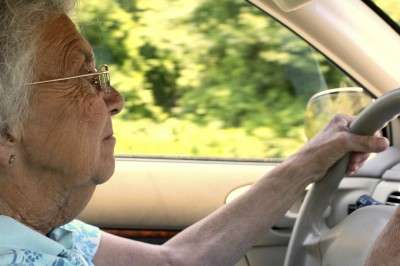Keeping older drivers on the road is the test

In the past fortnight in Melbourne there have been four high profile traffic accidents involving older drivers. Inevitably there have been calls for mandatory testing for older drivers.
Current licensing practices for older drivers vary across Australia. Victoria is the only state or territory where there is no compulsory licence test for an older driver if he or she wants to continue driving after they reach a certain age, generally 70 year or older. According to VicRoads, this means anyone who is able to drive safely without creating dangers for themselves or other road users can hold a driver licence without the need for re-testing.
Victoria's laws should be applauded because they in fact, unlike their state and territory siblings, take into account the evidence-based research which clearly indicates that testing older drivers not only doesn't make the roads safer, it significantly disadvantages those over 70.
Australia isn't the only place where there is a lack of uniformity regarding the licensing of older drivers. In Belgium, France, Germany and Sweden older drivers are effectively "licensed for life" while in Denmark, Italy, the UK and Portugal they must undertake regular assessment starting as early as 45 years of age in Finland.
Currently, there is no scientifically validated test which can identify with acceptable confidence the at-risk driver.
It is assumed that the general functional decline associated with getting on in years such as reduced eyesight and slower reflexes leads to unsafe driver behaviour. However what is not often considered is that many older drivers are actually aware of their own limitations – they drive a known route say to and from the shops; they don't drive at night, they drive slower, and leave longer headways (distance to the vehicle in front) etc.
Over the next four to five decades there will be a substantial increase in the absolute and proportional number of older people in most industrialised countries courtesy of the ageing of the "baby boomer" generation. In Australia the proportion of people over the age of 65 will increase from 11.1 per cent in 2001 to 24.2 per cent in 2051.The fastest growing group is women over 80 and more women in this generation are likely to be drivers compared with their mothers' generation.
It is a given that – statistically – older drivers are more likely to be involved in serious and fatal crashes. But for the most part, their over-representation in serious injury crashes per distance travelled is not because their eyesight is poor or their cognitive function diminished. Their bodies are more frail so a crash that leaves a teenager with a bruised knee can put an older person in hospital with a broken leg. Older people are also more likely to downsize to a smaller and cheaper car. What they don't realise (or their immediate families perhaps don't encourage) is that it is possible to shop around for a larger, safer car that will protect their grandparents when and if they crash. Saving a few litres of fuel a week is insignificant compared with the cost of multiple bone fractures.
If we assume that not all older drivers are poor drivers (in the same way we assume that not all young drivers are hoons), we should question the push to screen all older drivers for the sake of those few who are at-risk. Those that may in fact confuse the accelerator for the brake? The solution is a targeted approach, with valid tests for GPs to assist those difficult decisions about fitness to drive.
There is an enormous amount of research showing that mandatory testing of older drivers does not make the roads safer. One study compared the safety implications of the Finnish and Swedish licensing practices. Finland requires annual medical checks starting annually at age 70 for licence renewal, whereas Sweden has no age related controls. The Finnish program did not result in fewer crashes than in Sweden – but importantly it was found that Finland had a higher older pedestrian fatality rate, presumably the result of an increase in the number of older people relying on walking as their main transport option.
An Australian study which evaluated the effectiveness of different licensing systems by comparing the crash rates of drivers over 75 years across the country found that, despite its lack of a mandatory assessment program, Victoria had the lowest older driver crash rate per number of licences issued concluding that there were no demonstrable safety benefits for mandatory assessment programs. Another more recent Australian study found that Victorian drivers over 80 performed consistently better than drivers from other states and territories ?and in the case of serious injury crashes, the differences were statistically significant.
Put simply, mandatory testing of older drivers isn't cost effective and is discriminatory. It may seem easy to argue that older people are more likely to have crashes and should, therefore, get off the road. Surely then we would ban all 17 year old males from driving until they are 25?
Not only is there no evidence to support mandatory testing of older drivers there also needs to be recognition that there are real disadvantages associated with age based mandatory assessment. In 2050 almost one in four people will be over 65 and one in ten will be over 80. They will be working, going to the gym, spending money in cafes and restaurants, going to the movies and doing everything they can to stay mobile and active. Driving is key to that and we need to work out ways to help them stay on the road and to drive safely. To do anything else is simply discriminatory and uneconomical.
Provided by Monash University

















